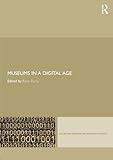All Categories
*Price and Stocks may change without prior notice
*Packaging of actual item may differ from photo shown
- Electrical items MAY be 110 volts.
- 7 Day Return Policy
- All products are genuine and original








About Seven Rules For Social Research
Product Description Seven Rules for Social Research teaches social scientists how to get the most out of their technical skills and tools, providing a resource that fully describes the strategies and concepts no researcher or student of human behavior can do without. Glenn Firebaugh provides indispensable practical guidance for anyone doing research in the social and health sciences today, whether they are undergraduate or graduate students embarking on their first major research projects or seasoned professionals seeking to incorporate new methods into their research. The rules are the basis for discussions of a broad range of issues, from choosing a research question to inferring causal relationships, and are illustrated with applications and case studies from sociology, economics, political science, and related fields. Though geared toward quantitative methods, the rules also work for qualitative research. Seven Rules for Social Research is ideal for students and researchers who want to take their technical skills to new levels of precision and insight, and for instructors who want a textbook for a second methods course. The Seven Rules There should be the possibility of surprise in social research Look for differences that make a difference, and report them. Build reality checks into your research. Replicate where possible. Compare like with like. Use panel data to study individual change and repeated cross-section data to study social change. Let method be the servant, not the master. Review "Firebaugh has produced a lively and insightful contribution. He discusses thought-provoking examples and has created some truly excellent and innovative end-of-chapter exercises. Firebaugh maintains a refreshingly reassuring conversational style with the reader and communicates difficult concepts in a straightforward manner. [T]his is a book to be studied, rather than just read." ---David Shemmings, Times Higher Education "This book is one of a kind and so excellent it will probably go into second and third editions. . . . Seven Rules of Social Research brings important issues of research design to life: this is not a dry or abstract book. . . . I think his book could be used to great advantage by three sorts of human geographers: those doing a thesis for their degree; those teaching introductory and more advanced courses on 'doing research'; and those seeking to refresh their own approach to research as full-time academics, research assistants or post-docs. . . . The book is supremely clear (even when discussing some knotty issues) and, even at almost 300 pages, does not feel long or turgid." ---Noel Castree, Progress in Human Geography " Seven Rules for Social Research is an excellent choice as a supplement for an undergraduate methods course as well as a complete text for the basic graduate methods course. Firebaugh's book would also serve as an invaluable supplement for undergraduate senior seminar students and graduate students alike who are looking for a straightforward reference for conducting both course based and independent research projects. This will be a book that students keep on their shelf throughout their academic career. I intend to keep it on mine." ---Allison L. Vetter, Teaching Sociology "This . . . book provides an interesting set of rules and thoughtful reflections on issues relevant to conducting social research. It also has useful reviews of newer statistical developments. Overall, this is an insightful book that should be of interest to graduate students and researchers in the social sciences." ---Debra L. Oswald, PsycCRITIQUES "[T]his book is insightful and clearly written. . . . Simply put, this is an excellent book that I highly recommend for graduate courses I methods and methods comprehensive exam reading lists. All of our graduate students would benefit from reading it." ---Robert Andersen, Canadian Journal of Sociology "The book, and especially its chapter exercises, is most suit


















